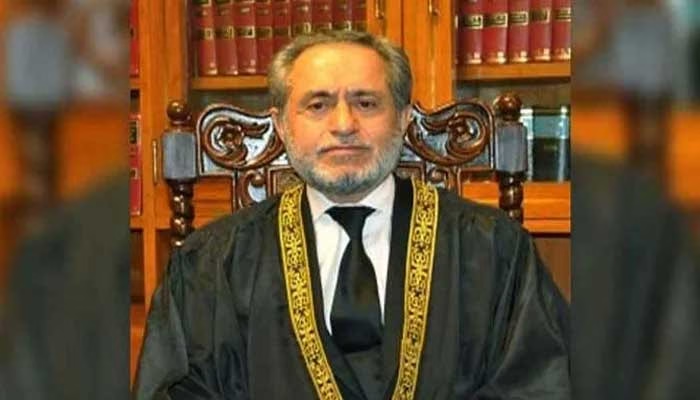The recently released Justice Mandokhail dissent note on the reserved seats case has stirred significant debate in Pakistan’s legal and political circles. Justice Jamal Khan Mandokhail, who served on the now-dissolved Constitutional Bench, issued a detailed critique of the Supreme Court’s earlier ruling that granted reserved seats to 41 candidates who had joined the Sunni Ittehad Council (SIC). He argues that the decision not only contains constitutional errors but also oversteps the powers granted to the Supreme Court under Article 187.
From the very outset of his remarks, the Justice Mandokhail dissent note asserts that the majority judgment exceeded constitutional boundaries. According to him, the ruling concerning the 41 candidates stretched beyond the Court’s authority and relied on inaccurate facts that were not part of the official record. He emphasized that no authority, including the Supreme Court, possesses the power to change the declared status of a candidate once it has been verified and submitted under election laws.
Concerns About Exceeding Constitutional Limits
In his detailed objections, Justice Mandokhail wrote that the judgment under review was in excess of the power granted to the Supreme Court by Article 187.He stressed that Article 187 does not provide unlimited powers to the Court and that the principle of “complete justice applies only to matters formally under adjudication. The Justice Mandokhail dissent note warns that the majority judgment amounted to judicial overreach, particularly in reclassifying the 41 candidates as independent lawmakers.
He pointed out that the candidates were already declared independent at the time of joining the SIC, and that their status had never been a pending issue before the Court. Therefore, the majority decision, which effectively modified their legal classification, was neither supported by the record nor within the Court’s jurisdiction. No authority including the Court has the power to declare a candidate independent or change his status contrary to his declaration,he observed.
Errors in Granting Candidates 15 Days
One of the central criticisms in the Justice Mandokhail dissent note pertains to the 15-day period given to the candidates to join another party. Justice Mandokhail stated that this relief was not only unconstitutional but also factually incorrect. He described it as an error of the Constitution and law, as well as an error of facts floating on the surface of the record. According to him, there was no legal basis for granting such a timeframe, nor was there any constitutional provision supporting this form of relief.
He also noted that the majority judgment overlooked relevant constitutional provisions, including Article 51(6)(d), which governs the allocation of reserved seats. Once a candidate joins a political party, he added, that affiliation carries constitutional consequences. Under Article 63-A, a member cannot quit the party without risking the loss of their seat. Therefore, according to the dissent, the Court’s attempt to reclassify these 41 members was inconsistent with constitutional protections and the electoral framework.
Misinterpretation of PTI Affiliation
Another key argument in the Justice Mandokhail dissent note is that the majority assumed that the candidates were affiliated with Pakistan Tehreek-e-Insaf (PTI), even though no evidence existed to support this claim. He clarified that before joining the SIC, these candidates held no recorded PTI membership. Their independent status was not disputed by any authority during the election process, nor was it challenged before any court.
He argued that the Constitutional Bench ignored these facts and moved forward on assumptions rather than evidence. This, according to Justice Mandokhail, undermined the integrity of the ruling and raised questions about the judicial reasoning behind the decision.
Warning Against Judicial Overreach
The Justice Mandokhail dissent note repeatedly cautions against exceeding judicial authority. As he emphasized, the Supreme Court is empowered to interpret the Constitution, not to rewrite political declarations or restructure electoral classifications. Declaring the 41 candidates as independent once again, he wrote, amounted to judicial overreach and set a concerning precedent for future cases involving political parties and electoral processes.
He concluded that the majority verdict could not be sustained and that its reasoning was inconsistent with constitutional mandates. According to him, the ruling should not stand because it relied on assumptions, stretched legal provisions beyond their intended limits, and attempted to alter facts that were never in dispute.
The Justice Mandokhail dissent note provides a powerful counterargument to the Supreme Court’s earlier judgment on reserved seats. By highlighting constitutional boundaries, factual inaccuracies, and judicial overreach, the dissent underscores the importance of adhering strictly to the electoral framework and the separation of powers. As Pakistan continues to navigate legal complexities surrounding elections and representation, Justice Mandokhail’s detailed note is likely to remain a significant reference point in the broader debate on judicial authority and constitutional interpretation.



